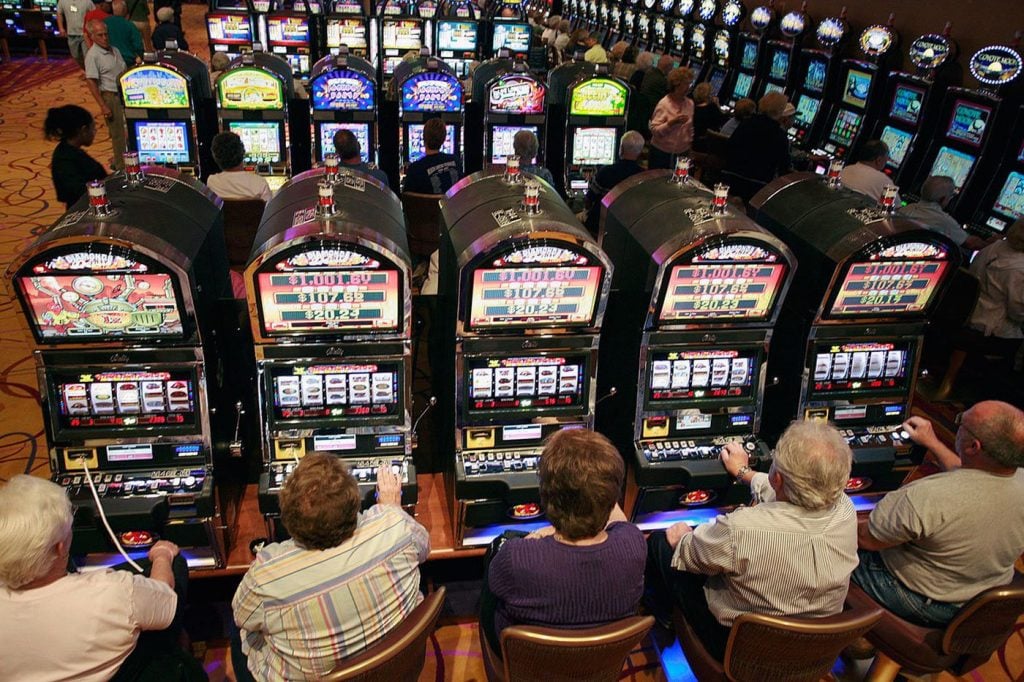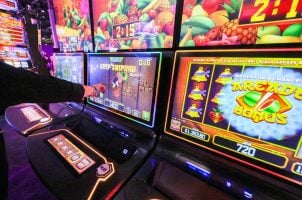Federal Money Laundering Case Prompts PGCB to Fine Mount Airy Casino $90K
Posted on: November 1, 2020, 11:11h.
Last updated on: November 2, 2020, 03:22h.
The Mount Airy Casino Resort was fined $90,000, the Pennsylvania Gaming Control Board (PCGB) announced last week, for nearly 500 instances where employees exceeded the discretionary free slot play limit.

The PGCB discovered that 10 casino employees awarded a total of $262,500 in unallowable free plays at the Poconos resort. That included one employee who pleaded guilty to a federal charge of conspiracy to launder money after she provided an unindicted co-conspirator with $140,000 in free slot play.
Free slot play is a promotional offering most casinos use to reward customers for their business and engender return visits. But Pennsylvania requires casinos to submit a “comp matrix” to the PGCB for its approval. That matrix details what employees can offer free plays and the amount each employee can offer.
Casino Employee Illegally Issued Free Play
According to the settlement agreement reached between the PGCB and the Mount Airy Casino in March, the Board’s Bureau of Investigations and Enforcement (BIE) started its inquiry on July 10, 2017. That was one week after Ashley Brosius, a VIP coordinator at Mount Airy, entered a guilty plea on a money laundering conspiracy charge in a Pennsylvania US District Court.
According to court documents, Brosius provided free slot play to someone who had not qualified for such a reward. Instead, she added free slot play to existing player reward accounts, made a duplicate rewards card, changed the PIN, and gave it to the player. She used the “biggest loser sheet” to determine which accounts to select, typically picking table game players who she thought would be less likely to see the free slot play they received.
The player then downloaded the free play onto different machines at the casino. They would then cash out winnings and give Brosius a tip. Prosecutors said she received tips ranging from $150 to $300 several times a week for about a year beginning in November 2014.
Authorities said Brosuius used about 30 different player cards in the scheme, and she used some accounts several times. The BIE noted a customer reporting a free play removed from his card led to Brosuis’ downfall.
While she faced a 20-year prison sentence for her crime, US District Judge A. Richard Caputo sentenced Brosius to two years of probation with six months home incarceration in May 2019.
Changes Made to Issuing Free Slot Play at Mount Airy
Brosuis’ actions were a “key element” of the investigation, PGCB Communications Director Doug Harbach told Casino.org. However, the Board also found other issues tied to unallowable free play.
According to the settlement agreement, casino officials told investigators they had issues with the player tracking systems and that kept them from being able to monitor free play awards. In a review of actions between September 2013 and November 2015, the BIE identified 10 Mount Airy employees awarding excessive free play amounts 491 times.
By February 2016, the casino implemented new policies that stripped free play awards except by the vice president of marketing or the general manager.
Mount Airy also developed a report issued several times a day that tracks all complimentary play awards.
In addition to the $90,000 fine, the casino also agreed to reimburse state officials $2,500 for the cost of the investigation.
Rivers Philadelphia Fined $45K for Similar Issue
Mount Airy wasn’t the only Pennsylvania casino the Board announced it fined last week for excessive free play violations.
The PGCB also fined the Rivers Casino Philadelphia $45,000 for allowing 405 instances where employees exceeded limits on free slot play. Those violations amount to $25,562 in unauthorized free play.
In its investigation, the BIE determined the Philadelphia casino did not follow its guidelines or internal controls processes for issuing free slot play
Related News Articles
AGS Soars on Reported Inspired Entertainment Takeover Bid
Arkansas Casinos to Link Progressive Slot Machines With Other States
New South Wales Calls Off Forced Cashless Gambling … for Now
Everi Buying Select Video King Assets for $59M
Most Popular
LOST VEGAS: ‘Tony The Ant’ Spilotro’s Circus Circus Gift Shop
Las Vegas Overstated F1 Race’s Vegas Impact — Report
Mega Millions Reportedly Mulling Substantial Ticket Price Increase
Las Vegas Strip Stabbing Near The Strat Leaves One Man Dead
Most Commented
-
End of the Line for Las Vegas Monorail
— April 5, 2024 — 90 Comments -
Mega Millions Reportedly Mulling Substantial Ticket Price Increase
— April 16, 2024 — 8 Comments -
Long Island Casino Opponents Love New York Licensing Delays
— March 27, 2024 — 5 Comments
















No comments yet